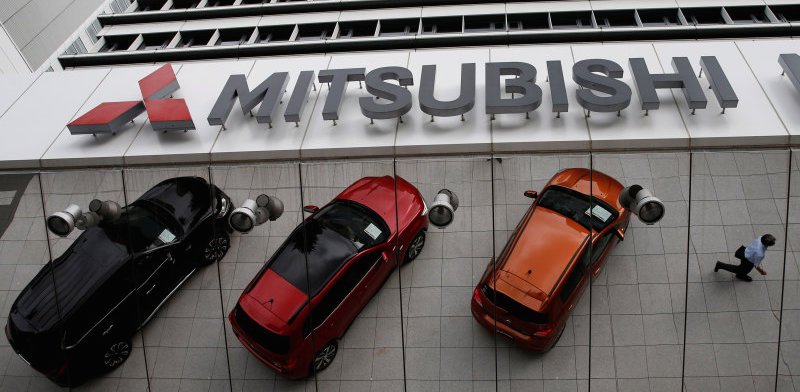Mitsubishi freezes introduction of new models for Europe

Mitsubishi has halted new model launches in Europe as part of an overhaul of its global operations to cut costs, which is expected to mark the beginning of the brand's withdrawal from the European market.
Under the 'Small but Beautiful' banner, the Japanese manufacturer plans to reduce its fixed costs by 20% over the next two years. It will shift to a business structure centred on Asia and "improve operating profit by downsizing low-profit businesses".
The firm will focus its resources on the South-East Asian market, where it currently has a 6.4% market share, compared with just 1.0% in Europe and 0.9% in North America. Its operating profit in the region last year was 63.6 billion yen (£469.6 million), compared to just 12.8bn yen (£94.5m) across all other global markets.
A planned "freezing of the introduction of new products in Europe" means upcoming models such as the next-generation L200 pick-up truck, Outlander SUV and Mirage supermini are unlikely to be sold here.
Car Dealer Magazine reports that Mitsubishi UK boss Rob Lindley was surprised to hear the news, but that the Colt Car Company - sole distributor of the brand's models in the country - will now "accelerate" talks it was already having with other manufacturers.
"We did not expect [Mitsubishi] to cease development of models for Europe completely and that was a shock," Lindley told Car Dealer, "but we were talking to other brands that are not yet represented here in the UK yet."
It is not yet known which brands are in line to fill the gap left by Mitsubishi's departure, but Lindley hinted that "if a brand is importing cars to Australia then they are a good fit for the UK as they are right-hand drive and crash tested to similar standards". It is suggested he is referring to top-selling Chinese brand Haval, which announced plans for a global rollout in 2017.
A Mitsubishi UK spokesman was unable to say for how long the European new model freeze will last but said that the situation is "evolving and changing rapidly".
Mitsubishi plans to achieve "sustainable growth" from the end of 2022 by consolidating investment into core regions and products. Changes in its home market include shifting production of its Pajero SUV from Sakahogi to Okazaki, closing unproductive dealerships and promoting its sharing and subscription business.
The spokesman told Autocar that it's too early to say what the plans mean for Mistubishi's 114 UK dealerships but that they're "still selling cars for the foreseeable future" and plan to continue to support customers with an ongoing aftersales parts and servicing offering.
However, the new model freeze means current models will not be replaced when they become non-compliant with EU emissions regulations, suggesting Mitsubishi will gradually withdraw from the European market.
Takao Kato, representative executive officer and CEO of the Mitsubishi Motors Corporation, said: "We will shift our strategy from all-round expansion to selection and concentration. First of all, we will complete our structural reforms and further strengthen our competitive areas – ultimately to build a corporate structure that can surely generate profits during this mid-term period." Further details on what this means for the struggling Renault-Nissan-Mitsubishi Alliance are unclear, but Mitsubishi has confirmed plans to continue introducing "cutting-edge models leveraging the Alliance partners' technologies". As part of its future models preview, the firm listed an electric kei car that it's co-developing with Nissan for launch after 2022.
Recently announced plans for the three Alliance brands to increase their sharing of technology and production are estimated to cut model development costs by up to 40%. As part of the revised structure, Renault has been named the lead brand in Europe, with Nissan taking the lead in Japan, North America and China and Mitsubishi the focus for South-East Asia and Oceania.
Nissan will continue to sell a limited number of successful models in Europe, but such a move would be less beneficial for Mitsubishi, given its smaller size.
